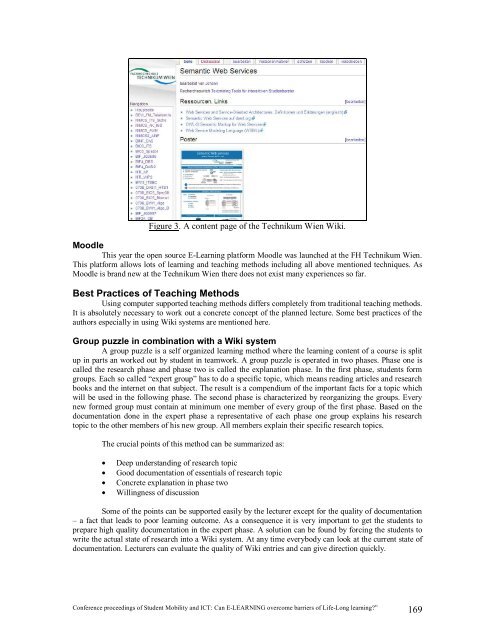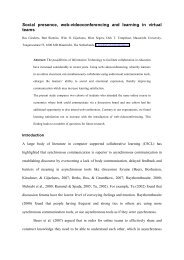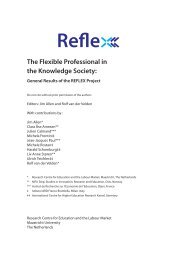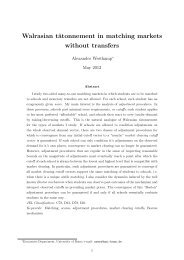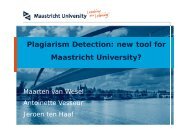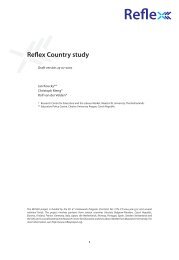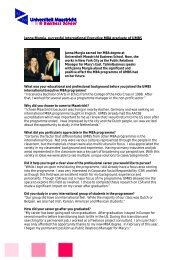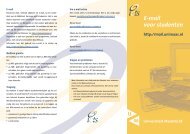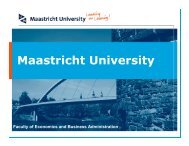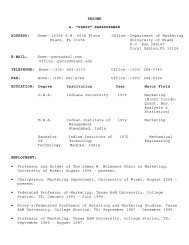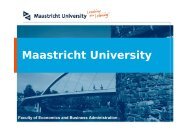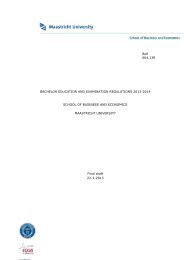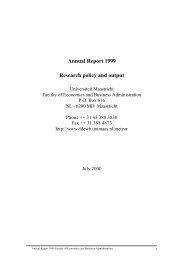proceedings of Student Mobility and ICT: Can E-LEARNING
proceedings of Student Mobility and ICT: Can E-LEARNING
proceedings of Student Mobility and ICT: Can E-LEARNING
Create successful ePaper yourself
Turn your PDF publications into a flip-book with our unique Google optimized e-Paper software.
Figure 3. A content page <strong>of</strong> the Technikum Wien Wiki.<br />
Moodle<br />
This year the open source E-Learning platform Moodle was launched at the FH Technikum Wien.<br />
This platform allows lots <strong>of</strong> learning <strong>and</strong> teaching methods including all above mentioned techniques. As<br />
Moodle is br<strong>and</strong> new at the Technikum Wien there does not exist many experiences so far.<br />
Best Practices <strong>of</strong> Teaching Methods<br />
Using computer supported teaching methods differs completely from traditional teaching methods.<br />
It is absolutely necessary to work out a concrete concept <strong>of</strong> the planned lecture. Some best practices <strong>of</strong> the<br />
authors especially in using Wiki systems are mentioned here.<br />
Group puzzle in combination with a Wiki system<br />
A group puzzle is a self organized learning method where the learning content <strong>of</strong> a course is split<br />
up in parts an worked out by student in teamwork. A group puzzle is operated in two phases. Phase one is<br />
called the research phase <strong>and</strong> phase two is called the explanation phase. In the first phase, students form<br />
groups. Each so called “expert group” has to do a specific topic, which means reading articles <strong>and</strong> research<br />
books <strong>and</strong> the internet on that subject. The result is a compendium <strong>of</strong> the important facts for a topic which<br />
will be used in the following phase. The second phase is characterized by reorganizing the groups. Every<br />
new formed group must contain at minimum one member <strong>of</strong> every group <strong>of</strong> the first phase. Based on the<br />
documentation done in the expert phase a representative <strong>of</strong> each phase one group explains his research<br />
topic to the other members <strong>of</strong> his new group. All members explain their specific research topics.<br />
The crucial points <strong>of</strong> this method can be summarized as:<br />
• Deep underst<strong>and</strong>ing <strong>of</strong> research topic<br />
• Good documentation <strong>of</strong> essentials <strong>of</strong> research topic<br />
• Concrete explanation in phase two<br />
• Willingness <strong>of</strong> discussion<br />
Some <strong>of</strong> the points can be supported easily by the lecturer except for the quality <strong>of</strong> documentation<br />
– a fact that leads to poor learning outcome. As a consequence it is very important to get the students to<br />
prepare high quality documentation in the expert phase. A solution can be found by forcing the students to<br />
write the actual state <strong>of</strong> research into a Wiki system. At any time everybody can look at the current state <strong>of</strong><br />
documentation. Lecturers can evaluate the quality <strong>of</strong> Wiki entries <strong>and</strong> can give direction quickly.<br />
Conference <strong>proceedings</strong> <strong>of</strong> <strong>Student</strong> <strong>Mobility</strong> <strong>and</strong> <strong>ICT</strong>: <strong>Can</strong> E-<strong>LEARNING</strong> overcome barriers <strong>of</strong> Life-Long learning?” 169


